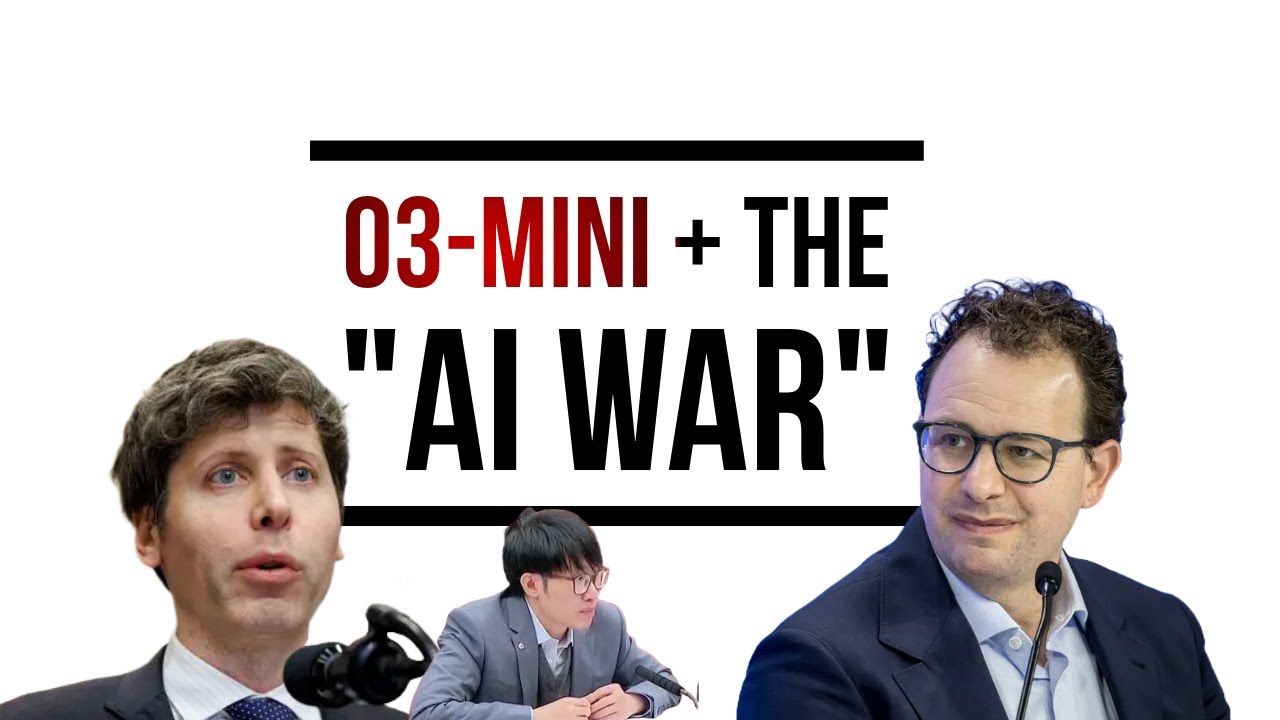The video reviews the O3 Mini AI model, highlighting its strong performance in mathematics and coding but noting its limitations in basic reasoning tasks compared to competitors like Deep Seek R1. It also discusses the broader implications of the AI “arms race,” emphasizing the need for responsible development and ethical considerations in the rapidly evolving AI landscape.
The video discusses the release of the O3 Mini AI model, highlighting its performance in coding and mathematics compared to competitors like Deep Seek R1. The presenter notes that while O3 Mini is accessible to free ChatGPT users, it lacks vision capabilities and raises questions about its cost-effectiveness in reasoning tasks. The presenter expresses skepticism about O3 Mini’s claims of being a cost-effective solution, especially when compared to Deep Seek R1, which offers cheaper API rates for input and output tokens.
The video emphasizes O3 Mini’s strengths in mathematics, particularly in solving complex problems. The presenter shares impressive statistics from the Frontier Math benchmark, noting that O3 Mini achieved over 32% success on first attempts when using a Python tool. This performance is contrasted with previous models, suggesting that O3 Mini may have underestimated capabilities. The model also shows strong performance in science-related tasks, outperforming earlier versions of OpenAI’s models.
Despite its strengths, O3 Mini struggles with basic reasoning tasks, indicating a gap in its conversational abilities. The presenter compares its performance on public reasoning questions with other models, revealing that O3 Mini scored lower than Deep Seek R1 and Claude 3.5 Sonic. This inconsistency raises concerns about the model’s overall intelligence and reliability in real-world applications, despite its impressive coding and mathematical capabilities.
The video also touches on OpenAI’s shift from a research-focused organization to a more product-oriented company, driven by increasing valuations and competition in the AI space. The presenter highlights the potential risks associated with AI development, particularly concerning model autonomy and safety. OpenAI’s commitment to not releasing high-risk models is discussed, along with the implications of rapid advancements in AI capabilities, which could lead to ethical and safety concerns.
Finally, the video reflects on the broader implications of the AI “arms race” between companies and nations, cautioning against framing AI development as a competitive war. The presenter expresses concern that such rhetoric could lead to safety catastrophes, emphasizing the need for responsible development and collaboration in the AI field. The video concludes with a call for mindfulness in the race to develop powerful AI technologies, highlighting the importance of safety and ethical considerations in this rapidly evolving landscape.
